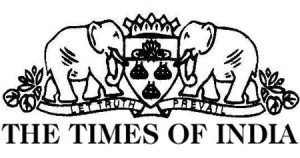Even those accused of heinous crimes get a hearing. Why then wasn’t former CBI Director Alok Verma granted one?
LET’S begin with an aside.
Saturday, January 12, was quite an active day on Facebook (FB) for me. I had anticipated it – due to my regular column in a leading daily. This time, it was on the constitutionality of Prime Minister Narendra Modi’s brand new economic reservation. My column features my photograph. Facebook notifies its user every time a photograph of that user is uploaded anywhere on the FB universe. However, there was an unusually large number of FB notifications on Saturday, and I just assumed that the subject of an economic reservation was inciting a lively debate on social media. However, I realised later that I was wrong; those too many FB notifications were for my elaborate comment in a leading English national daily justifying the removal of Alok Verma as the director of the Central Bureau of Investigation (CBI). Problem? I never made that comment. In fact, I had provided the exact opposite comment to the newspaper.
Now let’s come to Alok Verma’s removal. He was the Director of the CBI.
Appointment of a police officer is, generally, the prerogative of the Executive government. However, where a statute governs appointment to certain positions, the prerogative is suppressed to a great extent.
Alok Verma’s appointment and removal are governed by the explicit provisions of the Delhi Special Police Establishment Act, 1946 (DSPE). The directorship of the CBI is one of the most powerful police posts in India. It could be abused from within or outside – with worse consequences for our country. So, in the Vineet Narain judgment of 1997, our Supreme Court issued several directions to secure freedom, integrity and impartiality to the office of the CBI Director. Among other directives, it said that:
“7. The Director, CBI shall have a minimum tenure of two years, regardless of the date of his superannuation. This would ensure that an officer suitable in all respects is not ignored merely because he has less than two years to superannuate from the date of his appointment.
- The transfer of an incumbent Director, CBI in an extraordinary situation, including the need for him to take up a more important assignment, should have the approval of the Selection Committee.
- The Director, CBI shall have full freedom for allocation of work within the agency as also for constituting teams for investigations. Any change made by the Director, CBI in the Head of an investigative team should be for cogent reasons and for improvement in investigation, the reasons being recorded.”
The Parliament of India took note and modified the DSPE Act – 17 years later, in 2014. Not surprisingly, the Parliament had acted relatively swiftly to give statutory status to the Central Vigilance Commission – among the several recommendations by the Vineet Narain judgment – by bringing forth the Central Vigilance Commission Act, 2003.
Let’s glance at Sections 4A(1) and 4B of the DSPE Act:
“4A. Committee for appointment of Director.— (1) The Central Government shall appoint the Director on the recommendation of the Committee consisting of—
(a) the Prime Minister — Chairperson;
(b) the Leader of Opposition recognised as such in the House of the People or where there is no such Leader of Opposition, then the Leader of the single largest Opposition Party in that House – Member;
(c) the Chief Justice of India or Judge of the Supreme Court nominated by him – Member.”
“4B. Terms and conditions of service of Director.—(1) The Director shall, notwithstanding anything to the contrary contained in the rules relating to his conditions of service, continue to hold office for a period of not less than two years from the date on which he assumes office.
(2) The Director shall not be transferred except with the previous consent of the Committee referred to in sub-section (1) of section 4A.”
Do the above provisions seem complicated to you?
Fearing or miffed with Alok Verma, the Central Government suspended him (sending him on a forced leave) from acting as the CBI Director on the wee hours of October 23, 2018. Of course, the Central Government had not convened the selection committee because it claimed that it was not transferring Alok Verma to any other posting. He was still the CBI Director — in name only, of course. It does not take much legal expertise to recognise that the Central Government was reading Section 4B of the DSPE as if it was a “rogue’s charter”. [Please see: the Supreme Court judgment in RS Nayak v. AR Antulay in the context of a mischievous interpretation of the Prevention of Corruption Act, 1947: “Legislation must at all costs be interpreted in such a way that it would not operate as a rogue’s charter.”]
The protection offered to a CBI Director — both under the statute and in terms of the law laid down by the Supreme Court — was mocked at by the Central Government. Expectedly, Alok Verma approached the Supreme Court immediately afterwards. 77 days later, the Supreme Court began its judgment with the words that ‘the Rule of law is the bedrock of democracy would hardly require any reiteration’, struck down the divestiture order of the Central Government and restored Alok Verma as the CBI Director — with no power to indulge or evolve new policy. However, a swift reiteration was needed, instead. The Court requested the selection committee to convene within a week and decide on Alok Verma’s removal.

The High Powered Committee comprising (from second left to right) PM Narendra Modi, Justice AK Sikri and Leader of Opposition in Lok Sabha, Mallikarjun Kharge —that, by a 2:1 decision, removed Alok Verma (extreme left) from the post of Director, CBI | Photo courtesy: Live Law
The selection committee convened within days and promptly recommended Alok Verma’s removal, through a majority — without even wanting or bothering to hear him. And, the Central Government instantly removed him as the CBI Director.
High Powered Committee comprising Prime Minister @narendramodi, Mallikarjun Kharge & Justice A K Sikri by majority of 2:1 recommends transfer of CBI director Alok Verma from the CBI invoking section 4B(2) of the DSPE Act, 1946.Mallikarjun Kharge has given a note of dissent.
— The Leaflet (@TheLeaflet_in) January 10, 2019
The task before the selection committee was to examine the suitability of Alok Verma to continue as the CBI Director. And, one critical ingredient that just had to form part of its decision was the say of the CBI Director himself. It was impermissible in law for the selection committee to dispense with the say of the CBI Director, in the familiar facts of this case. Failure of his integrity was not and could not be gathered by the selection committee merely by perusing the report of the Chief Vigilance Commissioner (CVC). Remember that Alok Verma was seen as a man of integrity by this very selection committee — presumably, based on cogent material? So, in law, the past statutory satisfaction as to the integrity of a person to hold a high office gave both a natural and legal right to that person to present his say to a committee that wanted to subsequently remove him from that position — particularly when the committee was not told or asked to revisit its initial recommendation.
Though the DSPE Act does not explicitly say that the CBI Director must be heard before transferring him, it is not, by its very nature and arrangement, open to an interpretation that it gives the selection committee the freedom to dispense with a personal hearing to the CBI Director. In fact, if only the statute had positively said or indicated that the selection committee was free to dispense with a personal hearing would the selection committee be justified in refusing a personal hearing to the CBI Director.
Various theories are being floated to say that Alok Verma was not being removed but was merely being transferred to a different posting and so, the need for a personal hearing was not legally necessary. That’s not sound reasoning.
The selection committee constituted under Section 4A of the DSPE has no competence to transfer Alok Verma to any other post. Period. Section 4B of the DSPE speaks of transfer of a CBI Director by the Central Government and no such transfer is permissible unless the selection committee has first recommended removing that person as a CBI Director. Is Section 4B so difficult to read or comprehend? The task before the selection committee was only to consider the removal of this CBI Director — a position that cannot be filled in or filled out through mere transfer orders passed by the Central Government.
Should anybody be keen to perversely interpret the DSPE to say that one of the most powerful police postings in the country — of a CBI Director — is so vulnerable for removal from his office without even a personal hearing? It takes enormous ignorance of the march of this branch of law even to suggest so. It was all possible earlier, however, on Indian soil – perhaps, under the Government of India Act, 1858 to throw out high ranking police personnel without hearing them. We are not living in 1858. Or, are we?
Alok Verma should move the Supreme Court again. And he should be swiftly restored to his position as a CBI Director and given his 77 days that were spent in litigating before the Supreme Court. Else, today’s Supreme Court would be undoing all that has been carefully laid down in Vineet Narain and strived towards — an independent CBI and a CBI Director who is not beholden to the Central Government or the Prime Minister of this country but who is beholden to the criminal statutes, people and the Constitution of India.
Of course, the selection committee is free to and must reconvene, hear Alok Verma and decide appropriately, afterwards. Should he be removed after following a procedure that is faithful and respectful of the applicable law, there will be no grievance for anyone except for Alok Verma, and it won’t be our concern after that.
The post Even those accused of heinous crimes get a hearing. Why then wasn’t former CBI Director Alok Verma granted one? appeared first on TheLeaflet | An Imprint of Lawyers Collective.
Thank you for viewing this legal update on Lex Do It. For more legal news and updates do not forget to subscribe and share! Read Original Post





